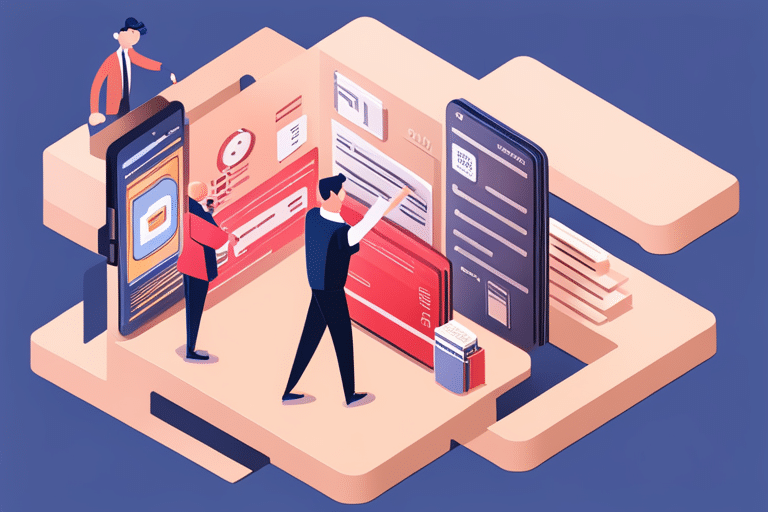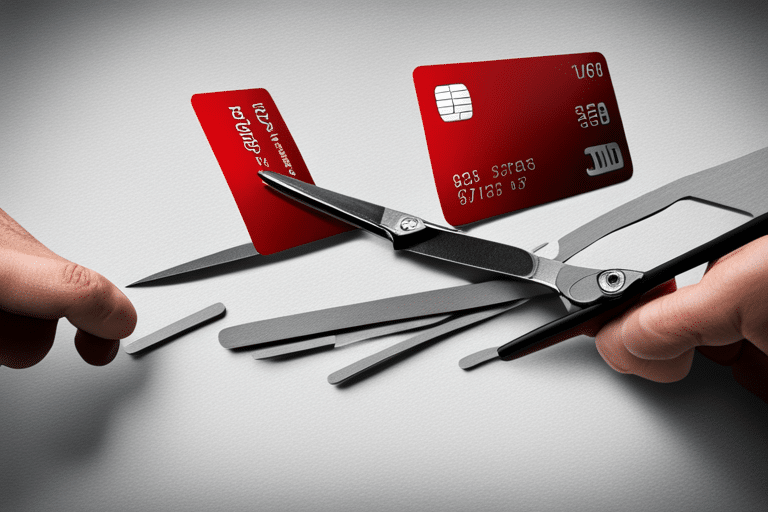Are you drowning in debt? Feeling like your financial situation is more chaotic than a tornado on caffeine?
Well, fear not! We’ve got just the solution for you. In this article, we’re going to show you how to create a bulletproof budget that will have your finances doing the cha-cha instead of spiraling out of control.
So put on your dancing shoes and get ready to master the art of budgeting like a pro. It’s time to take control and turn your financial fiasco into a fabulous feat.
Let’s dive in!
Key Takeaways
- Evaluate expenses and income to assess financial situation
- Prioritize and tackle high-interest debts to reduce overall debt burden
- Utilize expense tracking tools and apps to track spending habits and identify areas of overspending
- Seek professional debt counseling for guidance, support, and tailored advice in creating a bulletproof budget
Assessing Your Financial Situation

Before you can create a bulletproof budget, it’s important to assess your current financial situation. Now, don’t worry, this isn’t going to be as painful as trying to squeeze into those skinny jeans after the holidays. Think of it more like an exciting treasure hunt where you’re searching for hidden gems and secret stashes of money.
Start by evaluating all your options. Take a deep dive into your expenses and income. Are there any unnecessary subscriptions or memberships draining your bank account? Can you cut back on dining out or buying that fancy cup of coffee every morning? Get creative and explore resources like budgeting apps or online calculators that can help you track your spending.
Next, it’s time to dive into the murky waters of debt. But fear not! You’re armed with knowledge now, ready to identify and prioritize those debts that are dragging you down. It’s like choosing which villains Batman should defeat first – go for the joker-sized debts with high interest rates first, then tackle the penguin-like ones.
Identifying and Prioritizing Debt

When identifying and prioritizing debt, it’s important to understand which debts are most urgent. So, grab a cup of coffee (or tea if that’s more your style) and let’s dive into the exciting world of debt management! Here are three key things to consider:
-
Debt Consolidation: This nifty little strategy allows you to combine multiple debts into one single payment. It’s like putting all your debts in a blender and hitting the ‘smoothie’ button. Not only does this make managing your payments easier, but it can also potentially save you some moolah on interest rates.
-
Debt Negotiation: Picture yourself as a smooth-talking negotiator, armed with charm and wit (and maybe a snazzy suit). With debt negotiation, you can try to work out a deal with your creditors to reduce the amount you owe or lower those pesky interest rates. Who knew negotiating could be so empowering?
-
Urgency is Key: When it comes to prioritizing your debts, think about which ones are causing you the most stress or have the highest interest rates. Start tackling those first, while still making minimum payments on other debts.
Now that we’ve got our priorities straight when it comes to debt management, let’s move on to tracking our expenses and see where we can free up some extra cash flow for those crucial debt repayments!
Tracking Your Expenses

To effectively track your expenses, start by gathering all of your receipts and categorizing them based on different spending categories. It may sound tedious, but trust me, it’s worth it! Expense tracking is like having a personal financial detective that helps you solve the mystery of where all your money goes. And hey, who doesn’t love a good mystery?
Now, let’s talk about the benefits of expense tracking. First off, it gives you a clear picture of your spending habits. You’ll be able to see if you’re splurging too much on those fancy coffees or if those impulse purchases are adding up more than you thought.
Secondly, expense tracking tools can make your life so much easier. With just a few taps on your phone or clicks on your computer, you can have all your expenses neatly organized and ready for analysis. There are plenty of apps out there that do the job effortlessly and even provide insights into how you can save more.
Creating a Realistic Income and Expense Plan

Now that you have a clear picture of your spending habits through expense tracking, it’s time to create a realistic income and expense plan. Don’t worry, this doesn’t mean you have to give up all the fun in life! It just means finding a balance between what you earn and what you spend.
To help you get started on your journey to financial freedom, here are three budgeting techniques that will make your life easier:
-
Prioritize Your Needs: Take some time to identify your essential expenses like rent, utilities, groceries, and transportation. These are the things you can’t live without (sorry, but that daily latte might have to go). Once you’ve accounted for these needs, allocate a reasonable portion of your income towards them.
-
Set Realistic Goals: It’s important to dream big but be practical too. Set achievable goals based on your current financial situation. Whether it’s paying off debt or saving for a vacation, break down your goals into smaller milestones and track your progress along the way.
-
Be Flexible: Life happens, unexpected expenses pop up – we get it! Build some flexibility into your budget by setting aside an emergency fund or creating different categories for irregular expenses like birthdays or holidays.
Implementing Effective Debt Repayment Strategies

If you want to effectively tackle your debt, it’s essential to implement strategies that prioritize repayment and reduce interest payments. Let’s dive into some creative and lighthearted ways to take control of your financial situation!
First things first, consider exploring debt consolidation options. This can help you combine multiple debts into one manageable monthly payment. It’s like a superhero swooping in to save the day! Plus, with a lower interest rate, you’ll be able to pay off your debts faster.
Now, let’s talk about negotiating with creditors. Don’t be scared! They’re just regular people too (well, maybe with less capes). Reach out and explain your situation honestly. You might be surprised at their willingness to work with you. Maybe they’ll even offer reduced interest rates or extended repayment terms – it never hurts to ask!
Another strategy is to focus on paying off high-interest debts first. Imagine those debts as villains trying to steal all your hard-earned money! By tackling them first, you’ll minimize the amount of interest piling up and save yourself some serious cash in the long run.
Cutting Back on Non-Essential Spending

Hey, you ready to dive into the world of cutting back on non-essential spending? We’ve got some juicy tips for you!
First up, let’s talk about prioritizing those essential expenses. It’s time to separate the must-haves from the nice-to-haves and make sure your money is going where it really counts.
Next, we’ll tackle identifying unnecessary purchases. These are the sneaky little things that drain your wallet without you even realizing it. By becoming aware of them, you can start making smarter choices and saving money.
And finally, we’ll explore alternative cost-saving solutions. Who says saving money can’t be fun and creative? We’ll share some inventive ideas to help you cut back on expenses without feeling like you’re missing out.
Get ready to unleash your inner money-saving ninja!
Prioritizing Essential Expenses
First, take a look at your essential expenses and determine which ones are the highest priority. It’s time to prioritize like a boss! Let’s dive in and discover the key to mastering your budget.
Here are three essential expenses that should be at the top of your list:
-
Rent/mortgage: Because let’s face it, you need a place to lay your head at night. And I’m not talking about that park bench you’ve been eyeing.
-
Utilities: Say goodbye to candlelit dinners and hello to electricity! You’ll want water, heat, and all those modern conveniences.
-
Groceries: Ramen noodles may have gotten you through college, but it’s time to upgrade. A balanced diet is essential for conquering debt!
By identifying unnecessary purchases and cutting back on nonessential spending, you’ll be well on your way to financial freedom.
Identifying Unnecessary Purchases
Take a moment to evaluate your spending habits and pinpoint any unnecessary purchases that can be eliminated from your budget.
Let’s be real here, we’ve all fallen victim to impulse buying at some point. Those cute shoes, that fancy coffee, or the latest gadget that promises to change our lives. But hey, it’s time to take control!
Reducing impulse buying is key to saving money and getting your budget back on track. Think twice before making those impulsive purchases and ask yourself if you really need it or if it’s just a fleeting desire.
And while you’re at it, let’s talk about avoiding lifestyle inflation too. Just because you got a raise doesn’t mean you have to upgrade everything in your life. Stay mindful of your expenses and keep living within your means.
Your wallet will thank you!
Finding Alternative Cost-Saving Solutions
If you’re looking for ways to save money, consider exploring alternative cost-saving solutions that can help your budget stretch further. It’s time to get creative and think outside the box!
Here are some alternative budgeting techniques and cost-cutting strategies that will have you feeling like a financial wizard in no time:
-
Embrace the art of DIY: Instead of paying someone else to do things for you, try doing it yourself! From home repairs to homemade gifts, there are so many opportunities to save money by tapping into your inner handyman or craftsperson.
-
Shop smart: Don’t be fooled by fancy packaging and brand names. Look for generic alternatives or shop at discount stores. You’ll be amazed at how much you can save without sacrificing quality.
-
Cut back on subscriptions: Take a closer look at all those monthly subscriptions draining your bank account. Do you really need them all? Consider canceling or downsizing to only what truly brings value to your life.
Building an Emergency Fund

Hey, you!
So, let’s talk about something super important: building an emergency fund. Trust me, having one is a total game-changer when life throws unexpected curveballs at you.
We’ll dive into why having an emergency fund is crucial.
We’ll also share some savvy saving strategies for emergencies.
And, of course, we’ll learn how to manage those pesky unexpected expenses like a boss.
Get ready to take control of your finances and be prepared for anything that comes your way!
Importance of Emergency Fund
Start by understanding the importance of having an emergency fund when you’re drowning in debt. It may seem counterintuitive to save money when you already owe so much, but having an emergency fund can be a lifesaver (pun intended) in times of unexpected expenses or financial emergencies.
Here are three reasons why your emergency fund is essential:
-
Peace of mind: Knowing that you have some savings set aside for emergencies can help reduce stress and anxiety about unforeseen expenses.
-
Break the debt cycle: Having an emergency fund allows you to handle unexpected costs without relying on credit cards or loans, avoiding further debt accumulation.
-
Financial stability: An emergency fund provides a safety net, enabling you to deal with job loss, medical emergencies, or car repairs without derailing your entire financial situation.
Saving Strategies for Emergencies
To effectively save for emergencies, it’s important to explore different strategies that align with your financial goals and lifestyle. Let’s dive into some creative ways to build up your emergency fund!
First, set a specific savings goal so you know what you’re working towards. Whether it’s three months’ worth of expenses or more, having a target in mind will keep you motivated.
Next, automate your savings by setting up automatic contributions from each paycheck. This way, you won’t even have to think about it – the money will be whisked away before you can spend it on something unnecessary (like those cute shoes calling your name).
Another strategy is to cut back on non-essential expenses and redirect that money towards your emergency fund. Maybe skip that daily latte or pack lunch instead of eating out every day – small changes can add up quickly!
Lastly, consider earning extra income through side hustles or freelancing gigs. Every little bit helps when it comes to building a safety net for unexpected situations.
Managing Unexpected Expenses
Managing unexpected expenses can be challenging, but having an emergency fund in place can provide a much-needed financial safety net. Life has a way of throwing curveballs at us when we least expect it, like those pesky medical bills or the sudden need for car repairs.
But fear not, my friend! With a little creativity and some budgeting magic, you can handle these unexpected expenses without breaking the bank. Here are three tips to help you navigate through these financial hurdles:
-
Prioritize your expenses: Determine which bills need immediate attention and which ones can wait. This will help you allocate your limited funds effectively.
-
Negotiate payment plans: Don’t be afraid to reach out to healthcare providers or mechanics to discuss flexible payment options. They may be willing to work with you and create a plan that fits your tight budget.
-
Explore alternative solutions: Consider seeking assistance from local charities or community organizations that offer support for medical bills or car repairs. You’d be surprised at the resources available if you just ask.
Seeking Professional Help and Support

If you’re feeling overwhelmed by your debt, it might be beneficial to seek professional help and support. Don’t worry, you’re not alone in this struggle! Sometimes, we all need a little guidance to navigate the treacherous waters of debt. That’s where debt counseling comes in.
Think of it as having a financial superhero by your side, ready to swoop in and save the day.
Professional guidance can provide you with the tools and knowledge needed to tackle your debt head-on. These experts are like wizards of finance, armed with spells that can help you create a budget that works for you. They’ll analyze your income and expenses, identify areas where you can cut back, and guide you towards financial freedom.
Debt counseling is not just about numbers though; it’s also about emotional support. Let’s face it, dealing with debt can be stressful and overwhelming. But fear not! Debt counselors have seen it all before and they know how to put your mind at ease. They’ll listen to your concerns, offer advice tailored to your specific situation, and cheer you on every step of the way.
Frequently Asked Questions
How Can I Negotiate With Creditors to Lower My Debt Payments?
You’re drowning in debt, but don’t worry, there are ways to negotiate with creditors and lower your payments. Get creative with your negotiating strategies and explore different debt payment options. You got this!
Should I Consider Debt Consolidation or Debt Settlement Programs?
Consider debt consolidation or settlement programs, but be aware of the pros and cons. Consolidation can simplify payments, while settlement may lower your debt. Explore alternatives too, like budgeting and negotiating with creditors. Stay resilient!
What Are Some Effective Strategies for Increasing My Income?
Searching for side hustles and focusing on career advancement can be effective strategies for increasing your income. Explore opportunities that align with your skills and passions, and watch your earnings soar!
How Can I Handle Unexpected Expenses While Trying to Pay off Debt?
When unexpected expenses pop up while paying off debt, having an emergency fund is key. Prioritize your expenses by focusing on necessities and finding creative ways to save. You got this!
Are There Any Government Programs or Resources Available to Help With Debt Management?
Government assistance and non-profit organizations can provide valuable resources for managing debt. They offer programs, counseling, and financial education to help you regain control of your finances. Reach out and find the support you need!
Conclusion
So there you are, my friend, armed with the knowledge and tools to create a bulletproof budget even when debt is dragging you down.
It’s time to take charge of your financial destiny and pave the way to a brighter future.
Remember, it won’t be easy, but nothing worth having ever is.
So buckle up, stay determined, and watch as your debts disappear like magic while your savings grow like wildflowers in spring.
You’ve got this!
Now go conquer the world of finance with style and grace!

